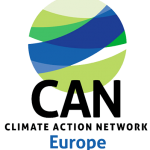The Cost of Methane: Why It's Time to Phase Out Fossil Gas
‘The Cost of Methane’ raises awareness of the often overlooked issue of methane emissions, the invisible climate and health killer released at all stages of fossil fuel operations. The aim is to expose the real-world impacts of this toxic pollutant while urging full implementation of the EU Methane Regulation as a first step towards phasing out fossil gas altogether by 2035.
Representatives from communities in different regions show that Europe’s dependence on fossil gas -most of which is composed of methane- causes harm that does not stop at EU borders, falling heaviest on frontline communities at both exporting and importing sites.
Methane is over 80 times more powerful than CO₂ in the short term. It drives one-third of current global warming and poses serious health risks, contributing to around half a million premature deaths each year by worsening toxic air pollution. Cutting methane from the energy sector would not only deliver immediate climate and public health benefits, but also strengthen EU energy security and pave the way for deeper fossil gas reductions.
Through visual and audiovisual testimonials we pass the microphone to frontline communities directly affected by methane emissions and Liquefied Natural Gas (LNG) expansion projects, to people bearing the direct costs of Europe’s fossil gas dependency, and to grassroots movements resisting fossil gas projects in Europe.
The message is clear and united: Europe must take responsibility for the harm caused by dirty fossil gas extraction and imports. Fully enforcing EU methane rules without delay or deregulation is essential for the future of our energy security, for positioning the EU as a global leader in methane action, and for moving closer to a full phase-out of fossil gas by 2035.
The first story features John Beard, founder and CEO of the Port Arthur Community Action Network in Texas. His community, known locally as the “belly of the beast,” is home to one of the largest oil refineries in the US and multiple LNG facilities, including Cheniere’s Sabine Pass, a major supplier of fossil gas to Europe. John’s testimony reveals how Europe’s fossil gas addiction harms the health of frontline communities in the US, with risks set to worsen under the recent EU-US trade deal that would boost fracked gas exports. He calls for the EU Methane Regulation not only to be upheld but strengthened to protect lives and health.
This story has also been covered here by FT Sustainable Views.
The second contribution features Svitlana Romanko, Director at Razom We Stand, Ukraine, and Oleh Savytskyi, Strategic Advisor. They share how the Ukrainian experience reveals the true cost of Europe’s fossil gas dependence: from financing the Kremlin’s war machine to unleashing toxic methane pollution. Phasing out Russian fossil gas, avoiding locking in further reliance on unreliable partners, and fully implementing the Methane Regulation are first steps to drive a complete phase-out of fossil gas.
Campaign highlights:
Frontline defenders from Louisiana and Texas, where much of the US fracked gas exported to Europe comes from, also joined the campaign to expose how their communities are paying the highest price for Europe’s fossil gas addiction. In these stories, they highlight how cutting methane can help protect livelihoods and local ecosystems:
- The story of Vessel Project of Louisiana, US
- The story of Fisherfamily Advisory Council for Tradition and Stewardship (FACTS), of Habitat Recovery Project, Louisiana, US
- The story of For a Better Bayou, US
- The story of Oilfield Witness, Texas, US
Complementing these stories, the campaign features a series of social media explainers to uncover the true costs of methane and underline the urgency of strong and timely EU methane rules:

